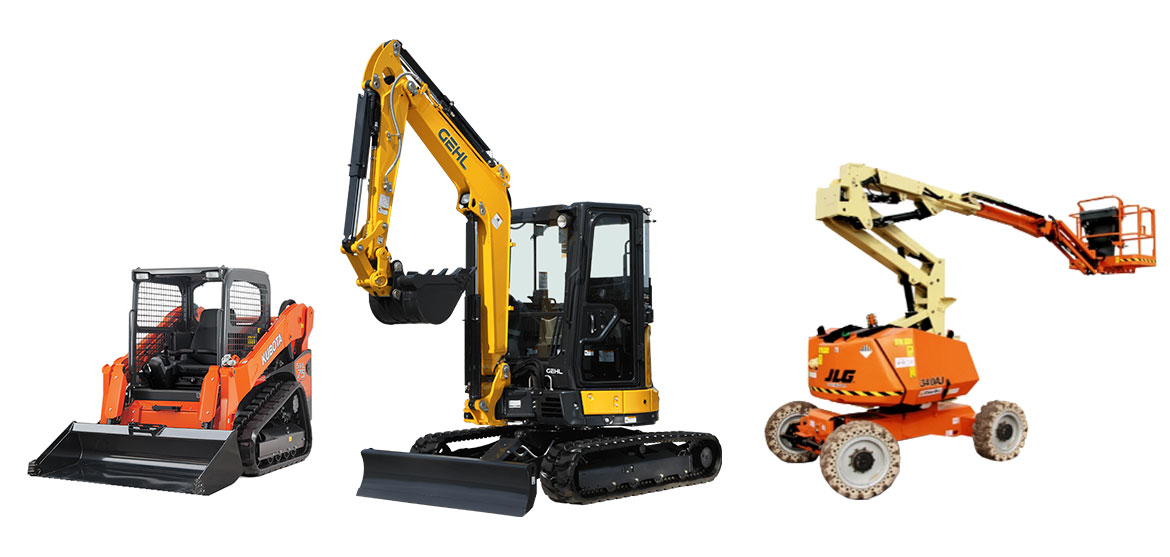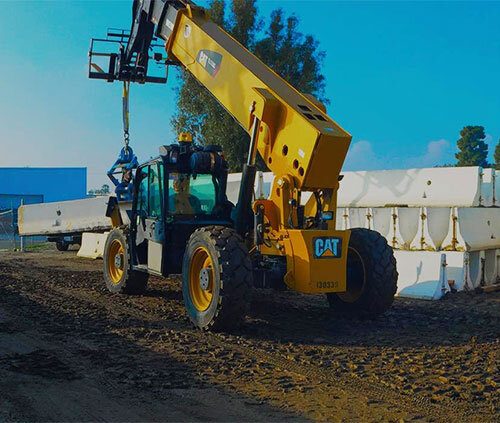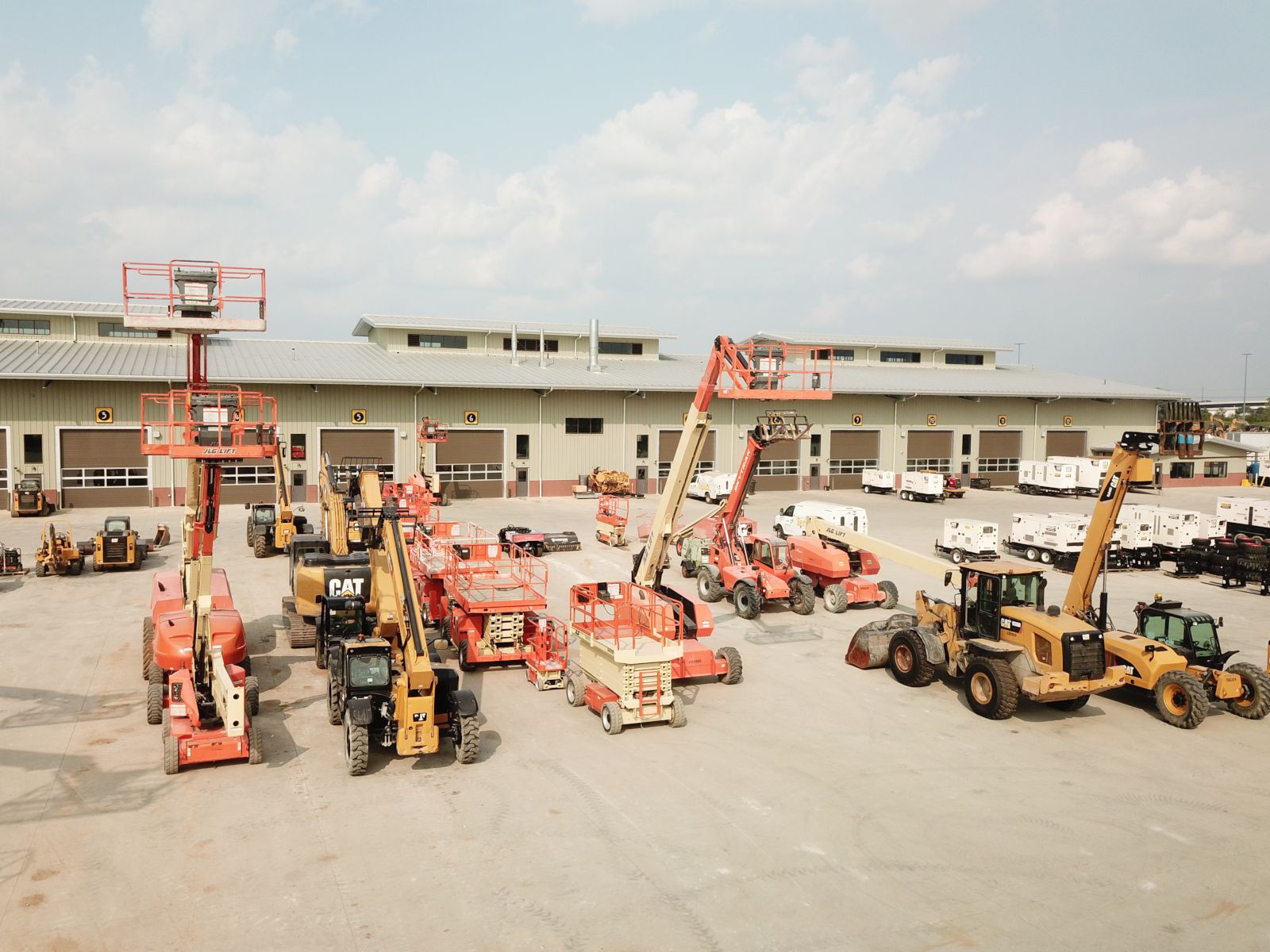Optimize Your Budget by Comprehending the Costs Connected With Building And Construction Tools Leasings
Recognizing the full range of costs connected with building tools leasings is essential for maximizing your spending plan. What approaches can be utilized to successfully take care of these prices and guarantee a much more reliable rental experience?
Summary of Rental Expenses
When taking into consideration building equipment leasings, comprehending the linked costs is critical for effective budgeting and project preparation. Rental costs can vary substantially based upon numerous aspects, including tools type, period of rental, and location. The initial rental fee often reflects the equipment's market need and its linked functional capabilities, influencing the general expenditure.
Along with the base rental price, secondary prices may emerge, such as transport charges, gas surcharges, and maintenance costs. It is important to account for these additional expenditures to accurately examine the total expense of renting out devices. The rental period can impact pricing; longer services might certify for discounted prices, while temporary services might sustain greater everyday charges.

Breakdown of Rental Prices
A comprehensive understanding of rental prices is necessary for professionals and task supervisors intending to optimize their budget plans. Rental rates for building and construction devices typically include a number of elements, including base rates, time-based charges, and use charges.
Base prices are the core fees linked with the leasing of the equipment, usually determined by the kind and dimension of the machinery. These rates can differ significantly, affected by variables such as devices demand, availability, and local market trends. Time-based charges, which may be daily, weekly, or monthly, offer to fit different task timelines and rental periods.
Additionally, rental prices might include use charges, which are appropriate when devices is made use of past a specified limit, making sure that the rental business can account for damage. Seasonal need fluctuations can additionally impact rental rates, with peak building and construction periods commonly regulating greater rates.
Additionally, understanding the rental firm's policies pertaining to maintenance and insurance policy can supply further insight into the general cost framework. By analyzing these elements, professionals can make enlightened choices, making certain the choice of rental tools lines up with both task demands and budget plan restraints.
Added Fees to Think About
Understanding the details of additional charges is essential for service providers to handle their overall rental costs successfully. Past the standard rental rates, different supplementary charges can considerably affect the overall expense of equipment leasing. These charges commonly consist of distribution and pick-up costs, which can differ based upon range and logistics associated with transporting the equipment to and from the job site.
Furthermore, some rental business may impose fuel surcharges if the equipment is returned with less fuel than when rented. It is also important to be aware of potential cleansing next page costs, particularly for specific tools that requires detailed upkeep after usage.

Thoroughly assessing the rental arrangement and clearing up these extra fees ahead of time can aid professionals prevent unexpected prices and ensure that spending plans stay undamaged throughout the project lifecycle.
Repair And Maintenance Expenditures
Routine repair and maintenance expenses are often forgotten elements that can significantly affect the overall cost of continue reading this construction devices rentals. When leasing equipment, it is critical to think about not just the rental charges yet likewise the possible costs connected with keeping the machinery in optimum operating condition.
Several rental companies consist of standard maintenance as part of the rental contract; nonetheless, much more extensive repair work or unanticipated break downs can result in added expenditures. It's important to assess the rental contract carefully to recognize what maintenance solutions are covered and what duties fall on the tenant.
In addition, equipment that is not well-kept can cause inadequacies on the job website, possibly creating hold-ups and increasing task costs. To reduce these dangers, it is a good idea to perform regular assessments and preserve open interaction with the rental copyright regarding any kind of problems that occur during use.
Insurance Coverage and Obligation Expenses
Insurance coverage and obligation expenses are essential parts that can significantly impact the total expenditure of building equipment services (dozer rental). These costs ensure that both the rental firm and the customer are secured from possible monetary losses occurring from accidents, damages, or theft during the rental duration

Additionally, clients ought to recognize any kind of deductibles or exclusions in the insurance plan, as these can impact potential out-of-pocket costs. Understanding the conditions of any insurance protection is vital to stay clear of unexpected prices. Ultimately, budgeting for insurance policy and liability expenditures can assist make certain a smoother rental experience and safeguard versus financial dangers connected with construction projects.
Final Thought
In verdict, an extensive understanding of the prices associated with building and construction devices services is essential for effective budget plan monitoring. By analyzing rental rates, added costs, maintenance costs, and insurance policy organizations, demands and people can minimize unanticipated expenses. This strategic approach not only enhances cost-effectiveness but also guarantees that tasks proceed efficiently and efficiently. Ultimately, informed decision-making concerning devices leasings adds to the total success of building and construction undertakings.
Rental prices can differ substantially based on several aspects, including devices kind, period of leasing, and place (heavy equipment rental). The rental duration can affect prices; longer rentals might her comment is here qualify for discounted prices, while short-term rentals may incur greater everyday charges
By performing detailed research study and involving with reputable rental firms, professionals can effectively browse the complexities of rental rates, eventually optimizing their monetary sources.
Beyond the standard rental prices, various auxiliary costs can dramatically affect the complete cost of tools rental. Rental firms typically supply obligation insurance that covers injuries to 3rd parties or damage to residential or commercial property, while devices damages insurance can cover the expense of repairs or replacement if the rented out equipment is damaged.